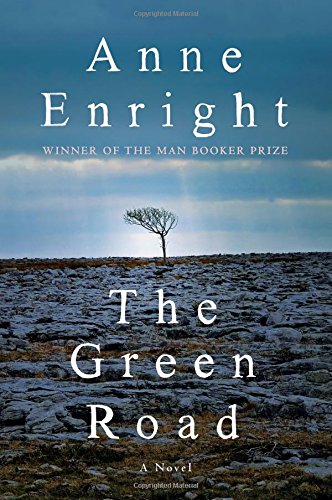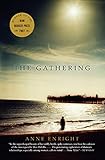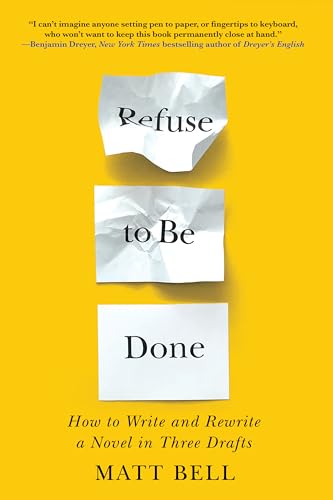
It was no surprise to me that after I interviewed Anne Enright in 2011 we talked about family. About her children who came relatively late in life, and about my not having any of my own. She said she’d been shocked at how much she loved motherhood, and wished she hadn’t put it off so long because she would have had five. She had two. Eventually, we decided motherhood was rather like a cult. Enright said, “Having a baby is like becoming a member of a cult because like a cult, you’re woken up at random hours of the day and night and you have to placate and worship. That’s what they do in the Moonies. They wake them up in the middle of the night and make them pick beans in the field. That’s what they do in re-education camp when they break people down to try to make them believe in something. Having a baby is a perfect example of how well it works because you end up loopy and talking about these human beings endlessly and alienating everyone else.”

 Family — children, siblings, spouses, parents — is a theme that Enright has explored masterfully throughout her literary career. The author of three volumes of stories, one book of nonfiction, and five novels, she was named the inaugural Laureate for Irish Fiction in 2015. Her novel The Gathering won the Man Booker Prize, and her last novel, The Forgotten Waltz, won the Andrew Carnegie Medal for Excellence in Fiction.
Family — children, siblings, spouses, parents — is a theme that Enright has explored masterfully throughout her literary career. The author of three volumes of stories, one book of nonfiction, and five novels, she was named the inaugural Laureate for Irish Fiction in 2015. Her novel The Gathering won the Man Booker Prize, and her last novel, The Forgotten Waltz, won the Andrew Carnegie Medal for Excellence in Fiction.
In her new book, The Green Road, Enright tackles motherhood, alcoholism, love in all its many forms, failure, AIDS, aging, and death — all the stuff that fills life with anxiety, despair, and dread. Moments of sweetness and compassion percolate up through this miasma though, showing that family bonds are difficult to break no matter how hard you try. Enright, who is allergic to sentimentality and cliche, has written a powerful story of the Madigan clan that is a mesmerizing family portrait.
I talked with Enright by phone on May 15th, when she was in Washington D.C. to promote The Green Road.
The Millions: Congratulations on becoming Ireland’s inaugural fiction laureate. Did you know you were in the running? What will your responsibilities be?
Anne Enright: Thank you. I was delighted. It’s half an honor and half a job, so you have to be available for it. They do run an availability check by you, of course, so I had an inkling I was in the mix. I’ll teach at NYU in 2016 from January to May, and I’m going to give a lecture every year and also curate some events. It’s designed to leave time for my own work. You know, you don’t want to kill the goose.
TM: Has there been any backlash about a woman being named?
AE: No, it’s all been very decorous and polite. I suppose if I were in some way clearly under-qualified for the job they might have been saying you know it’s just because you’re a woman. But that hasn’t been the case. My gender hasn’t been mentioned in this context publicly or privately to me, which has been interesting and nice.
TM: Do you think it’s a good time to be a woman writer?
AE: Yeah, something changed after the bust in 2008. A lot of certainties were disturbed, and the new work that’s coming out of that disturbance is really interesting and very urgent. A lot of it is written by women. For the first time in my writing life, I think the future is going to be a better balanced one. The Irish tradition has been very male heavy. It’s going to see these younger women coming through, and they don’t give a damn. It seems that something is over. Some idea of Irishness that doesn’t involve being female is over. I think it’s global, it’s happening all across the Western world.
TM: In The Green Road you’ve brought together a group of deliciously flawed characters who make up the Madigan family. We follow the four children over 30 years as they suffer though mistakes, regrets, health scares, and dashed hopes. Can you talk about the family you’ve chosen to write about?
AE: The Madigans are a very particular family with a particular problem that perhaps we all face: that, as they go on in life, stuff catches up with them. They have to somehow deal with all of that — your stuff, your mental baggage, which you’re carrying around with you, which in their case is to do with their mother Rosaleen. I think they all have a gap, or a loneliness, or a chill, or something that they’re trying to fix or fill. They’re trying to become proper human beings in one way or the other, or they’re not trying. Dan doesn’t try all that hard. But they all have a challenge to their compassion and their ability to rise to what life throws their way. I was very drawn to the whole business of compassion.
TM: There aren’t very many strong matriarchal figures in literature these days so I was delighted to see Rosaleen. She’s kind of a pain in the neck, questioning her children’s career choices, nagging them to come home, lose weight, whatever. But still, their lives continue to revolve around her. What were you looking for in her character?
AE: It took me a long time to get her onto the page. I really stalked her for a long time. I seeded in this character a few small vanities. She thinks she’s important in this small town. She has a sense of being an important person who married beneath her. It’s this slight preening sense that as she gets older becomes more problematic. She becomes more of a difficulty to herself. She’s not hugely self-aware, nor is she hugely grown up. We expect our parents to be grown ups, but Rosaleen has a kind of childlike quality to her. She gets upset quite easily. She’s quite fragile.
TM: Do you think Rosaleen is worried she let her children down?
AE: No, Rosaleen is in that hall of mirrors. She doesn’t know the difference between her children and herself. So basically she’s saying that she can’t accept that Dan is a separate human being, because he will leave her. She’s always on the brink of being abandoned. She’s always complaining that her children are ungrateful. They won’t do what they’re told, which is the same thing as “Oh god, they’re going to leave me.” That’s all we ever do is leave our mothers. We start leaving from the day we’re born, and that separation is difficult for both mother and child. So yes, it’s more about Rosaleen’s anxiety about being abandoned.
TM: As usual you’re not skimpy on the sex, and all your characters have healthy sexual appetites. There’s happily married sex, lonely sex, gay sex, romantic sex, and hot sex between long-time lovers. Was your knowledge intuitive or did you do research?
AE: Each of the characters has their own distinctive sexual style, you might say. They also have various spiritual lives, which is fairly new for me. For the gay sex, I did look up some statistics at one stage. I’ve read both the AIDS related work of Mark Doty which is kind of relationship centered, and also Larry Kramer. I have read over the years a fair amount of work about gay life.
TM: Part of Dan’s story takes place during the height of the AIDS crisis in New York City. We watch him evolve into someone who wants to live out his life with a partner, and to perhaps get married. I see that Ireland will hold a referendum on gay marriage on May 22nd. What do you think The Green Road says about this issue?
AE: The writer of The Green Road says she going to be home to cast her vote. That’s the most important thing. Everyone has an opinion, but the important thing is to put it into the ballot box. I had written all of that stuff long before the referendum was mooted. I’m interested to see some of the arguments that are happening now that had a foreshadowing in Dan’s life in The Green Road. It just seems that in 2005 this was a natural place for him to be. When his sister is kind of disappointed that he is getting into a conventional, heterosexual idea of long-term relationships she said, “I thought you got away from all that boring stuff,” and he says, “I did get away from it, and now I can do what I want.” That would be pretty close to my point of view about all that.
TM: The scene where Rosaleen is writing out her Christmas cards to her children fascinated me. She becomes so self-conscious with her words that she’s rendered practically mute.
AE: When Rosaleen’s doing her Christmas cards, it’s different for each child. You can see how she views them all different. This is one of the things that Rosaleen does that is supposed to be wrong as a mother of children. She labels her children, and she has favorites, and she has difficulties with each of them. She has no problem writing to Dan even though Dan never comes home. She’s not bothered writing to Constance even though Constance is down the road looking after her. This is like something I’ve seen and observed, this style of mother. The one who’s away is sort of worshipped, the prodigal son, and then they are not particularly grateful for the help they get. They just expect the one that is closest to home to look after them the whole time.
TM: When Dan announces he’s going to be a priest, Rosaleen feels as though there’s been a death in the family. She’s so heartbroken that she goes to bed for days, or as you say in the book, “mother took the horizontal solution.”
AE: By 1980 the amount of vocations to the priesthood were already very few. When the Pope came to visit there was this brief euphoria, but also a questioning of what was going on on the ground in the Catholic church in terms of new priests for the diocese. There were only like four or five a year entering the seminary. That time in 1980 was when the denial about Catholicism became a lot more obvious, you know, that we were all Catholic for two minutes. In fact, people were conducting their lives in ways the Catholic Church would not approve. Like when people were trying to obtain contraception, which was still illegal, and succeeding in getting it. It was one of those illegals that nobody really cared about. But Rosaleen isn’t the type of Irish mother who would be delighted. There are many types of Irish mothers, and that’s partly my point. There isn’t one quintessential Irish mammy who’s delighted to have a son as a priest.
TM: Sometimes the siblings seem like strangers to each other. They’re stuck in the same roles they had as children.
AE: The thing about the siblings is they come back in their mid-to-late 40s, and they’ve had all these amazing, unexpected, unimaginable things happen to them. They’ve had their disappointments, and all the rest of it. The thing is you go back to your family and your family really isn’t interested in your adult, complex, changed sort of self. They’re only interested in the old patterns of how people behaved in the family. You can’t actually communicate all this new vast knowledge you’ve acquired in the 30 years since you left. Family, since they shared so much early on, seem utterly familiar and known to each other. Those siblings continue to be familiar. They know the sounds of their footsteps. They know who’s in the next room by the sound of their breathing, but they can’t know what each other has been through. Nor can that be shared. We have some transcendental idea of perfect knowledge that comes when you love someone. That when you’re connected to them you want to sort of merge in some way and know everything about them. But we’re discreet separate units. It’s one thing whether we can know each other, it’s another thing why we should want to. The book really is interested in what it is to be alone. The scene where Rosaleen goes out on the green road is all about our concentrated and isolated individual humanity. It’s about being alone. The book is very interested in that, and what it is to be connected with people, as well.
TM: What’s the significance of the green road?
AE: The green road is a real road on the west coast of Ireland in County Clare overlooking the Burren and the Erin Islands. It’s very beautiful and a very iconic landscape. One of the key tourist images of Ireland is the Cliffs of Moher, which are visible from the green road, and it’s been used in work by [John Millington] Synge and [W.B.] Yeats and Lady Gregory. They were all interested in this landscape, which is a very impoverished, stony, barren kind of landscape. It seems quite bleak. It’s the last place before America. It’s kind of hard to be on that coast without thinking of elsewhere. There is a kind of feeling that there’s a wide world out there, and yet it’s a very intensely local, small town place as well.
TM: Your writing never drops into sentimentality or cliche. Is that something you purposely try to avoid?
AE: Yeah, I suppose I do. If I write something that’s cliche, then it’s going to bore me. I’m not going to spend my day being bored by my own work.
TM: Good dialogue is an art form. Yours seems so realistic and natural.
AE: That’s good to hear. I didn’t know whether I could do dialogue, or not. The second half of the book really becomes a play when they’re all sitting around the table talking to each other. I was kind of worried about that, because I hadn’t done a lot of dialogue before so I’m really glad you thought it was okay.
TM: How did you know when your story was done?
AE: Well, I wrote out beyond the end of this book, and then I brought it back in again. I wanted the characters to be on the brink of something new, without actually going into that territory. You get out early in your ending. I sometimes write for an editor who takes out my very carefully crafted first paragraph and my very wonderfully rendered last paragraph, and runs the piece without any other alterations. You realize you often don’t need that explaining bit of getting up to speed at the beginning or you don’t need to over finish the end. You don’t need to make many big bows as you walk out the door.
TM: Is there anything you still want to explore in your writing?
AE: I think the thing that excites me is structure or shape. And, I was pleased this time that I was writing men without too much difficulty. I haven’t written many men before. I may continue to do that a bit more.
TM: I’ve read that you said your books bridge the gap between high and low culture. Where do you think your books sit in the literary canon?
AE: I’m sort of anti-canonical. I’m not a canon sort of person. Also, since I’m not a maker or accepter of canons, I’d have to let somebody else answer that question. I think as a writer I have always refused any of the contexts that people might want to put me into. Might have been the reason I survived actually.
TM: It’s a busy time for you. You’re touring for The Green Road, and you’re at the beginning of a three-year post as fiction laureate. How do you keep your sanity?
AE: Actually, I’m much more relaxed on this tour than I have been on previous tours. I’m just getting a bit older, I think. This book was written after all questions about success or failure were kind of finished, and I don’t have to be asked about prizes any more. I’m just very happy to present the book rather than the career. But, in order to keep my sanity, this time out on tour I’ve been trying to domesticate it as much as possible, so instead of staying at hotels I’ve been staying with friends or family. There’s nothing like leaning up against the kitchen counter with a cup of tea, which is not something you can do in hotels all that much. Yeah, so I’m trying to see people I like to keep me sane. And, I like a bit of fresh air, and maybe a little bit of meditation.
TM: At the end of the day, what makes you happiest?
AE: When all is said and done what makes me happy is the great beauty of my children.








